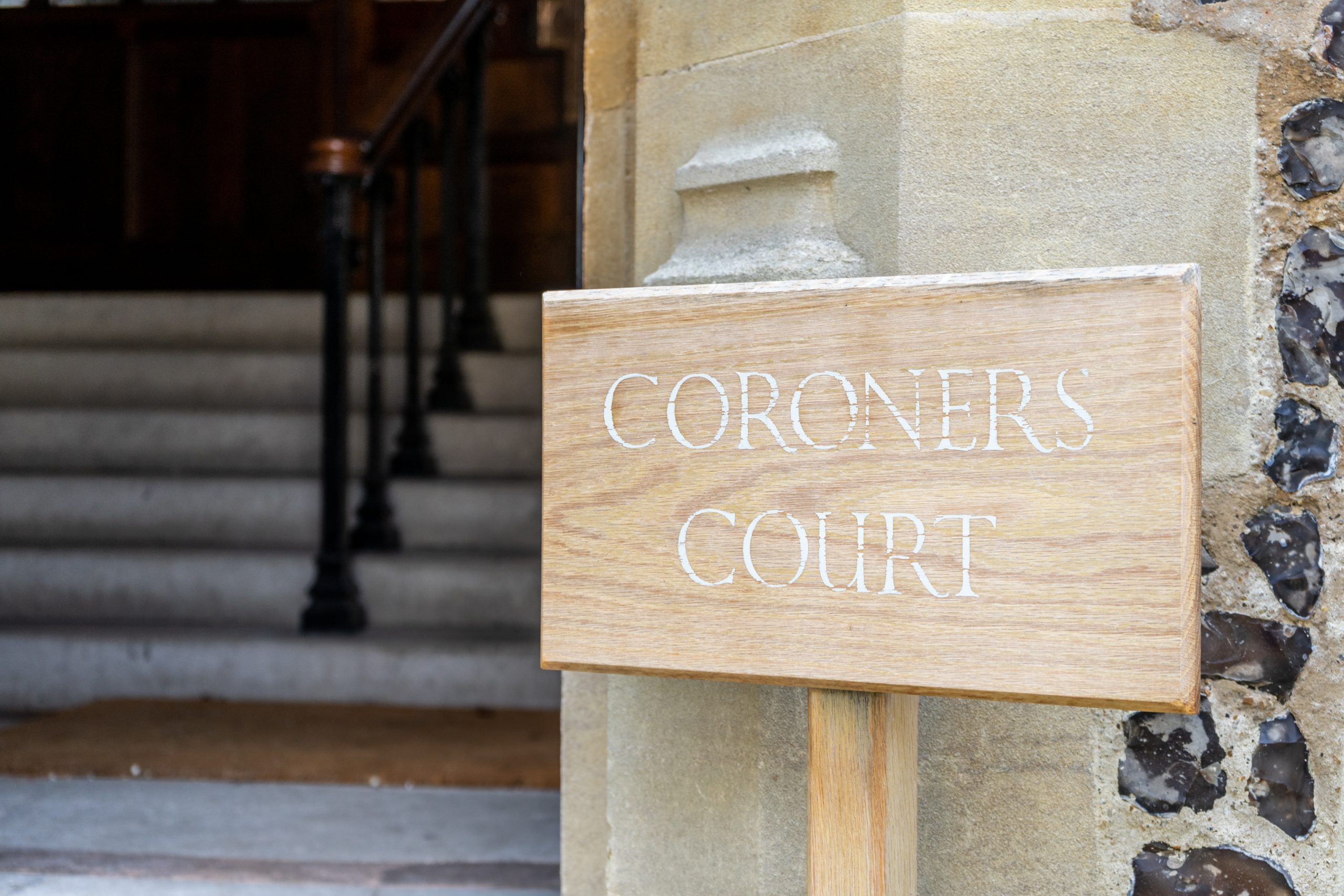Police, Misadventure, and the Limits of Article 2: R (Robinson) v HM Assistant Coroner for Blackpool & Fylde [2025] EWHC 781 (Admin)
![Police, Misadventure, and the Limits of Article 2: R (Robinson) v HM Assistant Coroner for Blackpool & Fylde [2025] EWHC 781 (Admin)](https://www.parklaneplowden.co.uk/app/uploads/2025/05/Jade-Ferguson-Banner.jpg)
Introduction
The High Court has provided important clarification on the circumstances in which Article 2 of the ECHR is automatically engaged following a death involving police contact.
The Court’s analysis has significant implications for future inquests where the boundaries of “state responsibility” are in issue.
Factual Background
On 11 March 2021, Mr Robinson was stopped by armed police officers in Blackpool.
After a car chase, he exited the vehicle and was restrained on the ground.
During the course of the restraint, he placed a plastic-wrapped package (later identified as containing drugs) into his mouth.
Officers attempted to prevent this, but the package became lodged in Mr Robinson’s throat and he quickly became unresponsive.
Officers started CPR and paramedics arrived promptly, but despite efforts to resuscitate him, Mr Robinson was pronounced dead.
A post-mortem determined that the cause of death was upper airway obstruction due to the package in his throat.
At the inquest, the coroner had deferred the decision as to whether Article 2 was engaged until after the evidence had been heard.
Following the evidence, the coroner declined to engage Article 2. The jury returned a short form conclusion of misadventure.
The coroner also wrote a “letter of concern” to the National College of Policing to address issues around the training of officers around the removal of drug packages.
No Prevention of Future Deaths (PFD) report was made.
The family sought judicial review on 3 grounds:
- The decision that Article 2 was not engaged.
- The coroner’s summing up to the jury was insufficient.
- The failure to issue a PFD report.
First Ground: Article 2
The Applicant submitted that the procedural obligation under Article 2 was automatically triggered and that the coroner had erred in finding otherwise.
The argument was twofold:
Firstly, that the case fell within a category where Article 2 is engaged automatically.
Secondly, in any event, there was an arguable breach of the state’s positive operational duty to protect life.
It was contended that the categories of case where Article 2 is engaged automatically are not closed.
The Applicant proposed that the following categories should be recognised as giving rise to automatic engagement:
- An unnatural death occurring while in the involuntary (lawful or unlawful) custody or control of the state.
- An unnatural death following the deceased committing an intentional act liable to cause himself harm in the presence or control of the police.
- A death where police are aware that the person has swallowed a package posing a risk to life.
- A death in custody or control where the person enters a medical emergency of which police were or should have been aware.
- A death following the use of force by police in the course of an arrest or physical control.
The Applicant argued that Mr Robinson’s death clearly fell within one or more of these expanded categories.
Furthermore, it was submitted that the police knew or ought to have known that Mr Robinson was at real and immediate risk of death, thereby triggering the positive operational duty under Article 2.
Conclusion
Mr Justice Kerr rejected the Applicant’s submissions and reaffirmed the orthodox position that the categories of automatic Article 2 engagement remain limited and are not lightly extended.
The Court accepted the approach in Morahan [2022] EWCA Civ 1410, quoting Popplewell LJ in that the circumstances of the death must be such that:
“They fall into a category which necessarily gives rise, in every case falling within the category, to a legitimate ground to suspect state responsibility by way of breach of a substantive article 2 obligation” (Morahan at [122(7)]).
Mr Justice Kerr found that the proposed new categories advanced by the Applicant lacked a sufficient degree of certainty or inevitability to justify automatic engagement.
While Mr Robinson had been under a degree of physical restraint, he was not in “custody or detention” in the relevant Article 2 sense.
In relation to the operational duty, the Court found that the coroner had correctly considered whether there was an arguable breach of the duty to protect Mr Robinson’s life.
However, the coroner had considered the evidence, particularly the officers’ rapid response and the provision of first aid and concluded that no such arguable breach had occurred.
The Judge held that this reasoning was legally sound and open to the coroner on the evidence.
Second Ground: Coroner’s Summing Up
The Applicant argued that the coroner’s summing up failed to adequately guide the jury on key issues.
In particular, in relation to the police’s conduct during the restraint and the timing of medical interventions.
Conclusion
The High Court rejected these criticisms.
Mr Justice Kerr held that the summing up, while brief, was fair and legally sufficient.
The jury had seen all the relevant evidence and were repeatedly reminded that they were the judges of fact.
The coroner’s directions were not biased or flawed, and the jury’s preference for misadventure verdict reflected their own view of the facts, not flaws of the directions given.
Third Ground: PFD Report
The Applicant argued that the coroner’s decision to send a “letter of concern” instead of a PFD effectively avoided the statutory reporting regime in favour of an informal mechanism.
Reliance was placed on the Chief Coroner’s Revised Guidance No.5. which stressed that the “concern” threshold is low.
Conclusion
The coroner’s refusal to issue a PFD report was upheld.
Mr Justice Kerr found that the statutory duty only arises where the coroner forms the view that both a risk of future deaths exists and that actions should be taken to prevent them.
Although the coroner recognized the risk and sent a “letter of concern” he had found that there was no sufficient basis to believe that action was required to prevent future deaths.
Mr Justice Kerr found no legal error in the coroner’s reasoning or decision.
It was emphasised that this is a matter of discretion for the coroner, not an obligation.
Commentary
This case affirms the narrowness of the circumstances in which Article 2 is automatically engaged in the context of deaths involving police contact, particularly outside formal detention settings.
The Court reaffirmed that the existing categories of automatic engagement are intentionally limited.
Expansion requires a clear and necessary link between the factual category and the likelihood of state responsibility.
The judgment also clarifies the threshold for the operational duty it is not enough that there was some general risk.
The officers must have known (or ought to have known) of a real and immediate risk to life and failed to take reasonable steps to avoid it.
Notably, the case demonstrates the reluctance to conflate police presence or control with detention in the absence of formal arrest or custodial status.













